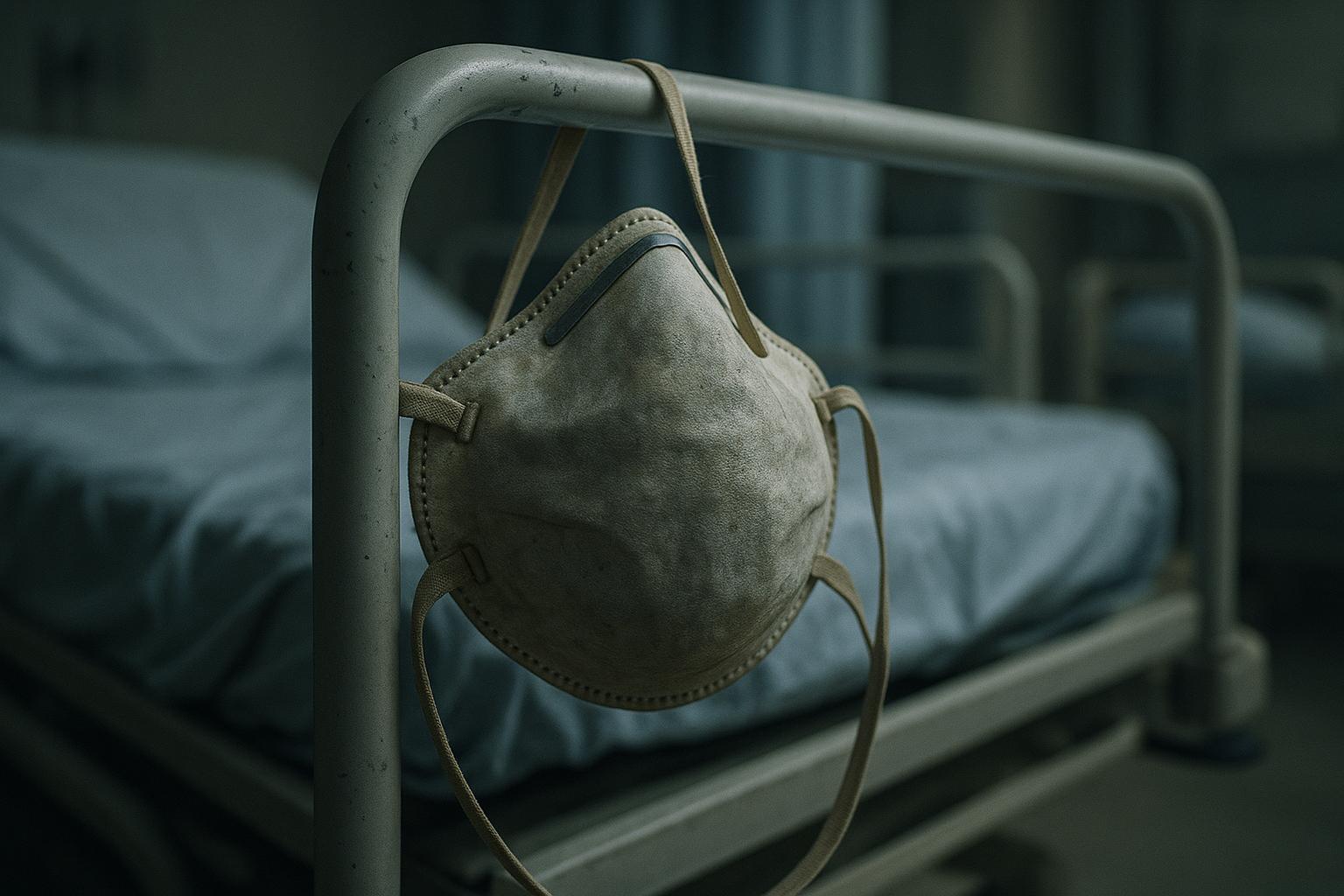The UK faces the prospect of a 'quin-demic' this winter, with simultaneous surges in Covid-19, flu, respiratory syncytial virus (RSV), rhinovirus, and norovirus infections potentially placing intense pressure on the National Health Service (NHS). Experts are warning that the healthcare system, already burdened by record waiting lists and staffing shortages, could be pushed to breaking point if these viruses continue to increase in tandem.
Two emerging Covid variants, Stratus and Nimbus, are already driving a sharp rise in infections. The UK Health Security Agency (UKHSA) reports that Covid test positivity has climbed from 7.6% to 8.4% within a week, accompanied by a rise in hospitalisations from 2.0 to 2.7 per 100,000 people. While these new variants are believed to spread more easily than earlier strains, they do not appear to be more severe in terms of illness. Nevertheless, the combined effect with other circulating viruses is causing alarm among virologists and health professionals.
Influenza activity is also climbing earlier than expected, notably among schoolchildren aged five to 14, where positive flu tests more than doubled from 1.9 to 4.1 per 100,000 as the new school term began. RSV, a major cause of chest infections in infants and vulnerable adults, has similarly increased—from 0.27 to 0.44 per 100,000 cases in mid-September—according to UKHSA data. For most, RSV causes cold-like symptoms, but it can be dangerous for babies under six months, the elderly, smokers, and those with pre-existing lung or heart conditions. Cases of rhinovirus, the main culprit behind the common cold, almost doubled between late summer and September, raising concerns especially for those with asthma or compromised health.
Norovirus, the highly contagious stomach bug responsible for vomiting and diarrhoea outbreaks, remains at relatively low levels currently. However, experts recall last winter’s surge, which led to wards closing and significant workforce shortages due to illness. The virus can be particularly debilitating for elderly and frail individuals due to the risk of dehydration. As NHS websites have reported over a million visits seeking norovirus advice, public anxiety about this virus remains high amid the rising pressure from respiratory infections.
The confluence of these viruses follows a pattern seen last year, when a similar 'perfect storm' of flu and RSV overwhelmed hospital capacity, forced cancellation of thousands of operations, and extended waiting times. Professor Lawrence Young, a virologist at Warwick University, warned that without strong uptake of flu and Covid vaccinations, the NHS could face "extremely severe burdens" this winter. He emphasised the importance of vaccination campaigns, noting that Australia, which recently experienced a severe flu season, provides a cautionary precedent for the UK.
In response to these concerns, the UKHSA has launched an integrated infectious disease data dashboard, updated weekly, to offer transparent public monitoring of multiple respiratory viruses including Covid-19, influenza, RSV, adenovirus, and others. This tool aims to enhance public awareness and help guide health responses during the winter season.
Health authorities have urged vulnerable groups, including over-75s, pregnant women, care home residents, and immunocompromised individuals, to receive Covid and flu boosters. For children, nasal spray flu vaccines are being offered, with community pharmacies now able to administer these to toddlers for the first time. Some high street pharmacies also provide private Covid vaccinations, reflecting efforts to increase coverage.
The challenge for the NHS this winter extends beyond managing case numbers, as overlapping symptoms of these viruses complicate diagnosis and treatment. Common symptoms such as cough, fever, fatigue, and sore throat can be indicative of various illnesses. The NHS advises seeking medical attention if symptoms worsen, persist beyond ten days, or include chest pain, severe breathlessness, confusion, or feeding difficulties in children.
NHS leaders have cautioned that this winter could be one of the most demanding in recent memory due to the combined effects of the 'quin-demic,' existing waiting lists, workforce constraints, and potential industrial action. Professor Young reiterated the crucial role of personal responsibility in mitigating strain on health services: "If you're unwell, don't shrug it off. Stay home, rest, and avoid passing it on. These small steps can make the difference between a service coping, and a service in crisis."
📌 Reference Map:
- Paragraph 1 – [1], [4]
- Paragraph 2 – [1], [5]
- Paragraph 3 – [1], [6]
- Paragraph 4 – [1], [3]
- Paragraph 5 – [1]
- Paragraph 6 – [2], [4]
- Paragraph 7 – [1], [4]
- Paragraph 8 – [1]
Source: Noah Wire Services
